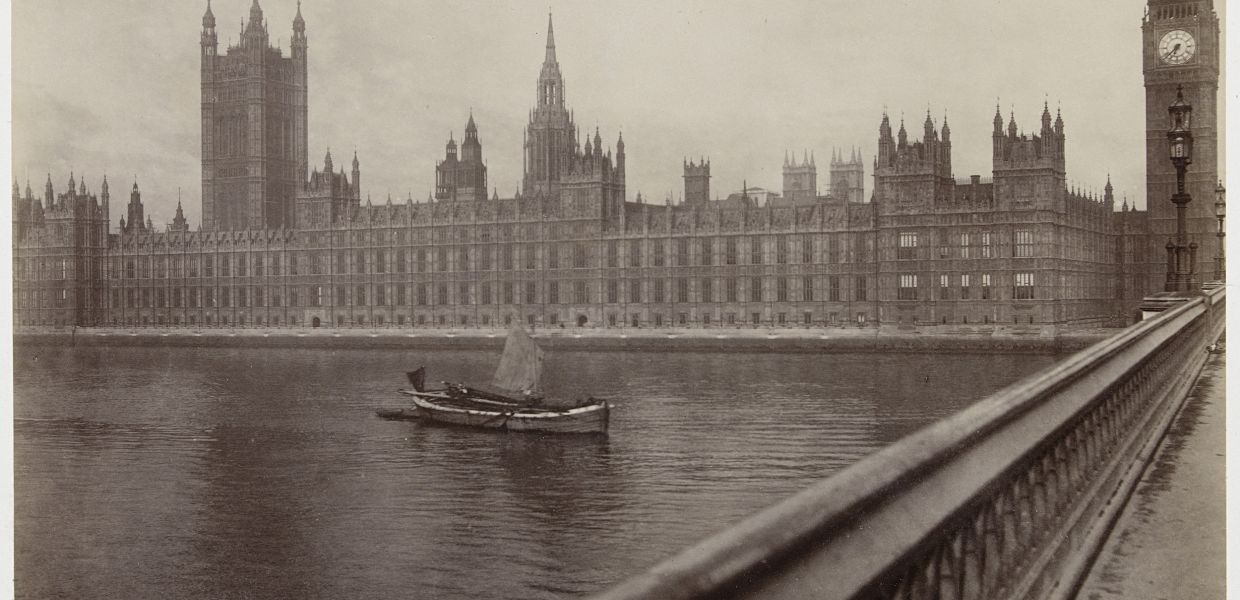Discussion about copyright reform kicks off in the European Parliament

- Title:
- Parlementsgebouwen in Londen
- Institution:
- Rijksmuseum
- Copyright:
- Public Domain
On the 19 January Pirate Party MEP Julia Reda presented her draft of an European Parliament initiative report on the evaluation of the EU copyright directive. The copyright directive, which dates from 2001, provides the fundamental rules for the copyright laws of all EU member states. It is at the heart of the discussion about a modernisation of the European Copyright rules.
This blog updates you on the latest areas of the discussion that affect cultural heritage institutions, both in Reda’s report and the proposed amendments to it.
While the European Commission has been discussing a review of the EU copyright rules since 2013, the EU parliament has been relatively silent on this issue until this year. MEP Reda's draft report contains 24 suggestions for updating elements of the copyright framework. The publication of the draft report has generated a fair amount of discussion (helpfully documented by Julia Reda on her own website).
While the draft report will be handled in the Legal Affairs (JURI) committee of the European Parliament, other relevant committees (such as Culture and Education (CULT) and Internal Market and Consumer Protection (IMCO)) have been asked for their input through so called opinions. The draft opinions were published in February (CULT opinion by MEP Adolphine here, IMCO opinion by MEP Stihler here). As part of the parliamentary proceedings other Members of Parliament can propose amendments to these drafts which will then be considered by the respective committees and finally adopted or rejected through a majority vote system. The final opinions will be sent to the lead committee (JURI) who in their turn will decide whether to adopt or reject these amendments in their final report, also via a majority vote.
Over the last weeks the lists of amendments to the original report as well as to the opinions by the CULT and IMCO committees have become available on the website of the European Parliament.
The lists of proposed amendments allow us to get a first idea on where different Members of Parliament stand when it comes to modernising the copyright rules that affect cultural heritage Institutions.
Julia Reda's draft report contained one point that is directly relevant for cultural heritage institutions. In point 20 she called for:
… the adoption of a mandatory exception allowing libraries to lend books to the public in digital formats, irrespective of the place of access;
On the other hand the issue of providing online access to out of commerce works in the collection of heritage institutions (which is central to Europeana's position on copyright reform) was notably absent from Reda's draft report.
Online access
Looking at the (more than 650!) amendments that have been proposed in all three committees we are happy to report that this absence has been noted by various MEPs who have submitted amendments that aim to put this issue on the agenda.
In JURI, MEP Schaake is suggesting 2 amendments that would introduce a consideration and a new call to action to MEP Reda's report. Schaake proposes to make an explicit reference to the fact that both the Commission and the many Member states have policies aimed at increasing online access to cultural heritage that are hampered by the existing copyright rules:
[AM 69] Whereas the European Commission and the Member States are making considerable investments in the digitization and online accessibility of the rich collections of Europe's cultural heritage institutions, so that citizens can enjoy access from everywhere on any device;
This consideration is followed up with a call for expanding the existing exceptions that apply to cultural heritage institutions:
[AM 348] Calls for expanding mandatory exceptions beneficial for public interest institutions, such as libraries, museums and archives, which play a central role in facilitating online access to cultural heritage, and access to information that allows them to make protected works in their collections, that are not in commercial circulation anymore, or otherwise actively managed by their rights holders, available for online access by the public;
The last point is echoed by amendments to the IMCO and CULT draft opinions in which MEPs Stihler (IMCO AM 68) and Trüpel (CULT AM 72) urge the Commission and Member States to ...
... provide for an updated exception that allows libraries, archives and museums to make protected works in their collections, that are no more in commercial circulation or otherwise actively managed by their right holders, available for online access by the public;
Having this issue added to the report via the above amendments would be an important first step in ensuring that they stay on the table in the upcoming discussions about the copyright reform proposal. A copyright reform proposal that does not address the problems faced by cultural heritage institutions that attempt to provide online access to their collections would be a huge missed opportunity and would constitute a considerable setback for Europe's ambition to allow citizens to access their culture heritage online.

